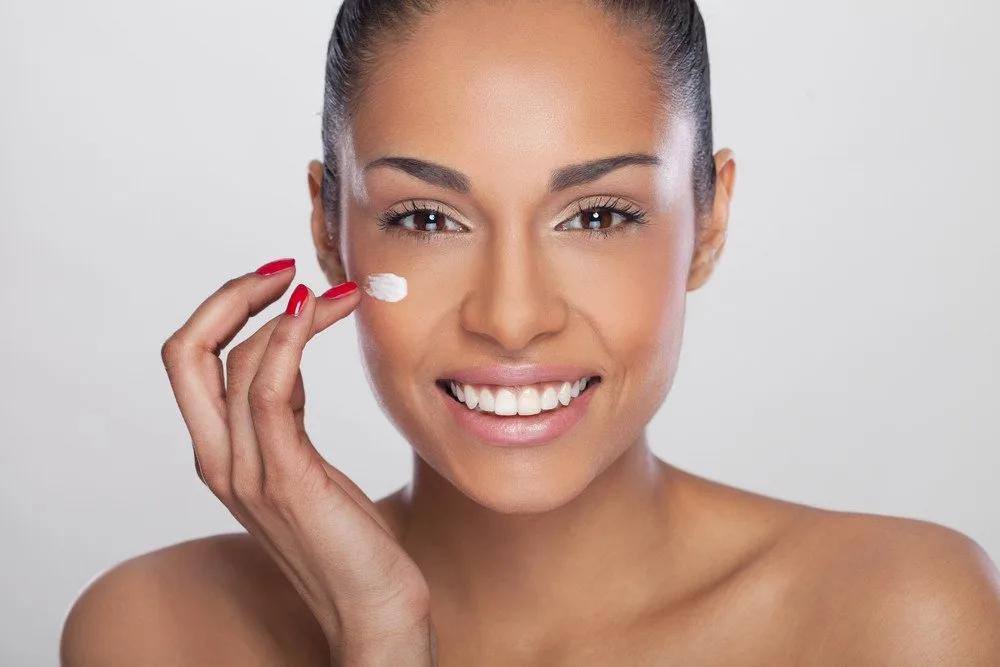Some of the first tell-tale signs of aging and not looking after yourself properly can be spotted on the skin. Fine lines, wrinkles, enlarged pores, dry patches, and dark undereye circles are common skin issues that people deal with as they get older. As the skin is the body’s biggest organ, taking care of it is just as important as looking after the rest of the body and its health. However, unfortunately, many people take their skin for granted and don’t dedicate enough time to looking after it.
Best conditioning for your skin
As you get older, your skin loses its brightness, collagen, and hydration, which can leave it looking lackluster and not as youthful as it once did. Of course, genetics and some health conditions can affect your skin, and these are largely out of your control. However, you can take some relatively simple measures to protect your skin. If you want to know how to keep your skin in the best condition as you get older or at any age, then keep reading for some top tips.
What Is The Skin Made Up Of?
Before getting stuck into helpful advice on looking after your skin, it is important to know what the skin is made up of. Consisting of three layers; the epidermis, the dermis, and subcutaneous fat, each layer has its own role to play.
- The epidermis – This is the top layer of skin that people see when they look in the mirror or touch. The surface layer is constantly shedding dead cells and replacing them with new cells that grow in the layers underneath this first layer of skin. This is also where pores are which allow oil and sweat to leave the body.
- The dermis – This second layer of skin contains oil and sweat glands, hair follicles, nerve endings, and connective tissue. This is where collagen is found, which supports the skin’s strength and elasticity and helps it look younger.
- Subcutaneous fat – The skin’s third and final layer. It acts as a cushion and shock absorber as well as helps to keep your body insulated. This also attaches the skin to the muscle and tissue underneath the skin.
Now that you know what your skin consists of, get stuck with the best tips for looking after it.
Develop A Skincare Routine
Skincare routines can be confusing. There are so many lotions and potions out there that claim to have wonderful life-changing effects on your skin’s appearance. While some of these products are beneficial, all skincare routines are based on three basic steps, performed twice a day in the morning and at night:
- Cleansing
- Toning
- Moisturizing
Cleansing is the first step in any skincare routine as it helps remove impurities and any remnants of makeup from your skin, leaving it squeaky clean. Using a toner helps to balance your skin’s pH and can eliminate any dead skin cells and excess oils. As the skin largely consists of water, it is important to lock this moisture in by using a nourishing moisturizer. Ingredients like vitamin E, glycerin, and hyaluronic acid are superheroes when it comes to skincare.
Tip: Choosing a product that works for your skin type and age is important. As you get older, the skin all over your body goes through changes that include hyperpigmentation, uneven skin tone, and age spots. These can be unsightly and negatively affect your confidence. By choosing a product such as Kojie San kojic acid soap to include in your skincare routine, you can diminish the appearance of these imperfections over time. Patience is key when practicing any new skincare routine, as it can take up to six weeks to see the desired results.
Always Wear SPF
Protecting your skin from the sun is one of the most important things you can do to look after it. The sun’s UV rays are the main cause of premature aging and skin cancer. When the skin is exposed to too much UV light, it can penetrate the inner layers of the skin, which causes the breakdown of collagen and sunburn, where skin cells can get damaged or die, resulting in skin cancer and aged-looking skin. It is important to wear an SPF on your skin every day (including in the winter and on cloudy days) to protect against sun damage.
Exfoliate Weekly
The body sheds millions of skin cells every day. If these stay on the skin’s surface, they can make it look dull. To ensure your skin looks bright and brand new, just like the cells underneath the dead ones, try to exfoliate weekly on your face and body to keep your skin looking and feeling its best. Choose a gentle exfoliator that has a neutral pH level, as this will prevent your skin from drying out.
Use Clean Makeup Tools
If you wear makeup and do not clean your makeup brushes regularly, dust, oil, bacteria, and sweat can build up. Using makeup applicators that are dirty can result in clogged pores, spots, and inflammation of the skin, which can leave your skin looking unsightly. To combat this, ensure you clean your makeup brushes at least once a week. It is also important that you practice good makeup hygiene in general. Always wash your face and hands before applying your makeup to prevent bacteria from spreading. Ensure you stay on top of your makeup expiry dates, too, as using out-of-date makeup can increase your risk of skin irritation and breakouts.
Eat A Healthy Diet
Having a healthy diet is important for maintaining healthy-looking skin. Just like with other areas of health, eating processed foods and refined carbohydrates like pastries, white bread, sweets, and pasta can cause skin inflammation in some people.
An antioxidant-rich diet can help your body and skin fight free radicals, improving your skin’s general appearance.
Tip: Look for foods that are high in omega-3 fatty acids and proteins to help boost collagen production, reduce inflammation and give your skin’s health a boost. Vitamin A and vitamin C promote skin cell reproduction and can be found in vibrant-colored fruits and vegetables such as kale, sweet potato, spinach, red peppers, and carrots.

Photo by Dominic Sansotta on Unsplash
Get Plenty Of Sleep
Sleep is the magical remedy for many things in life, including making sure your skin looks its best. When you are in a deep sleep, it enables your body to repair and regenerate your skin cells. It is recommended that adults get between seven and nine hours of sleep per night as this is the optimum duration for your body to repair damaged cells and produce all-important collagen. If you don’t get enough high-quality sleep, then your skin is more likely to sag and suffer from premature aging due to not being able to regenerate itself. So, turn off the TV, put down that phone, and get an early night for improved skin quality!
Drink Lots Of Water
Making sure you are drinking enough water can make a positive difference to your skin. After all, the skin works to store water, keep your body temperature regulated and prevent fluid loss. As you age, it is more difficult for the body to retain water and stay hydrated. This can have a detrimental impact on your skin as water helps to keep it hydrated and to maintain its elasticity, which is important for fighting fine lines and wrinkles. If you don’t drink enough water, your skin can become dry and make lines more visible. It’s simple – if you want to keep your skin looking refreshed and radiant, make sure you drink between five and eight glasses of water each day.
Tip: Read this article on why drinking lots of water is not just great for your skin but also for your longevity.
Stop Smoking
Obviously, smoking is bad for your health, but it isn’t good for your skin either, as it deprives it of nutrients and oxygen. Smoke from tobacco contains over 4,000 chemicals that can destroy collagen and cause your skin to sag and look worn. It is also important to note that smoking can cause your skin to change into an uneven color.
If you are a smoker who is worried about the effect this is having on your skin and overall health, then it is best to take steps to quit the habit for good. It won’t be easy, but seeking help from a medical professional, joining a community support group, and using patches or nasal sprays can help.
Avoid Stress
It is common knowledge that, in general, stress is bad for you. As well as increasing the risk of high blood pressure, stroke, and heart attack, stress can also negatively affect your skin. When you are stressed, the body produces more adrenaline and cortisol, which causes your skin’s glands to make more oil which can lead to spot breakouts and clogged pores. As well as this, stress can make any existing skin conditions like psoriasis and eczema worse. If stress is affecting your sleep, it can accentuate the appearance of dark circles as well. While not all stress can be avoided, there are some steps that you can take to limit the stress you experience in your life.
Tip: Going for a brisk 10-minute walks each day, practicing gentle yoga, journaling, and reconnecting with friends and family are all effective coping mechanisms when you are feeling stressed. Of course, if you are suffering from long-term stress that does not seem to improve with these self-care tips, seek help from your doctor.
Best to exercise
While it’s true that failing to wash after a sweaty workout can clog up your pores and allow toxins that you sweat out to seep back in, exercise is important for maintaining healthy skin. Raising your heart rate through exercise increases your blood circulation, which delivers oxygen and nutrients to your cells which leads to healthier skin. It’s already been mentioned that stress can negatively affect your skin, and exercise helps reduce this too.
 Adjust To The Weather
Adjust To The Weather
It might sound silly, but the weather can greatly impact your skin. You might notice that your skin starts to feel dry in the colder weather when the seasons change into autumn and winter. One noticeable sign of this is cracked hands and lips. This is because in the colder months, the skin has to work hard to maintain enough moisture, so it is important that you choose a thicker, more nourishing moisturizer to use during this time to give your skin the hydration it needs. As the seasons heat up, the skin produces more oil which can cause clogged-up pores and breakouts, and it is best to switch to a lighter moisturizer to help with this.
Tip: Regardless of the time of year, you should always remember to wear an SPF to protect against UV rays and blue light that is emitted from screens.
If you want to keep your skin looking as fresh as possible for as long as possible, then these tips should help you do just that.



 Adjust To The Weather
Adjust To The Weather![women [longevity live]](https://longevitylive.com/wp-content/uploads/2020/01/photo-of-women-walking-down-the-street-1116984-100x100.jpg)










